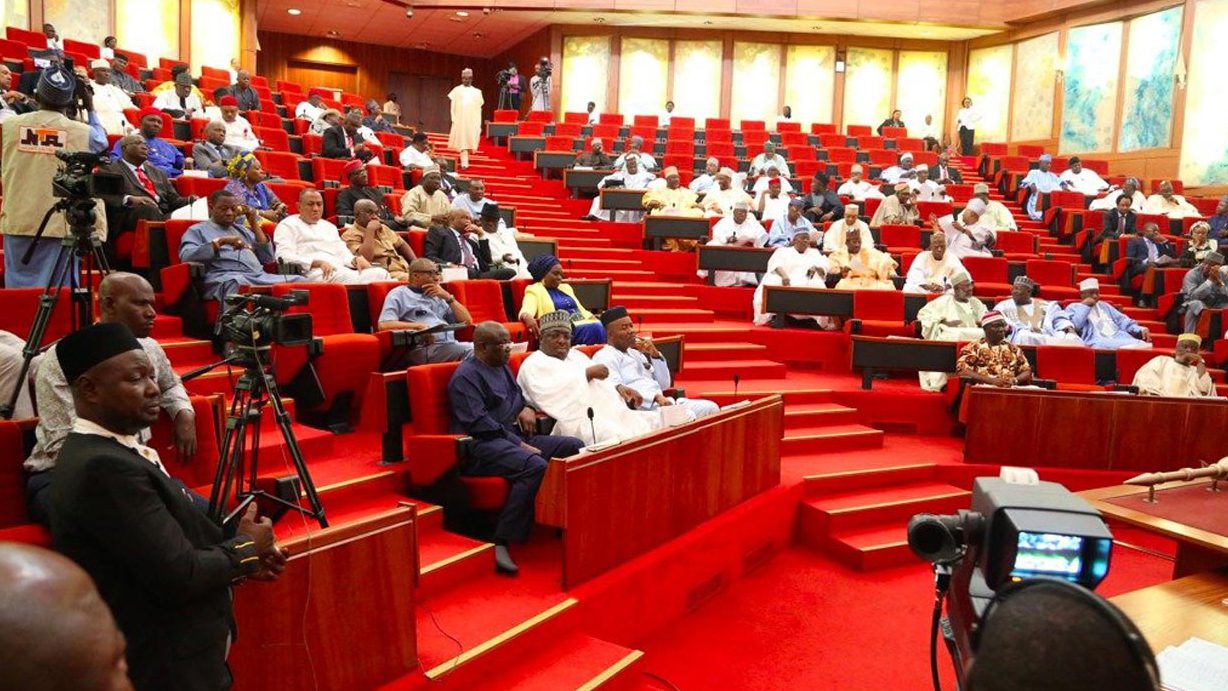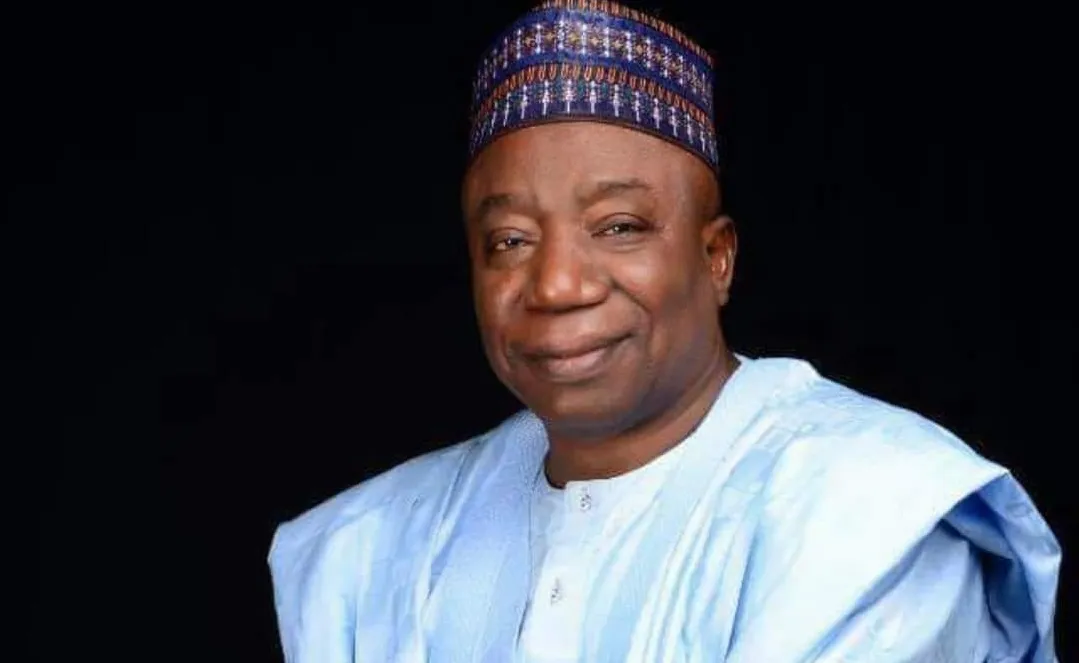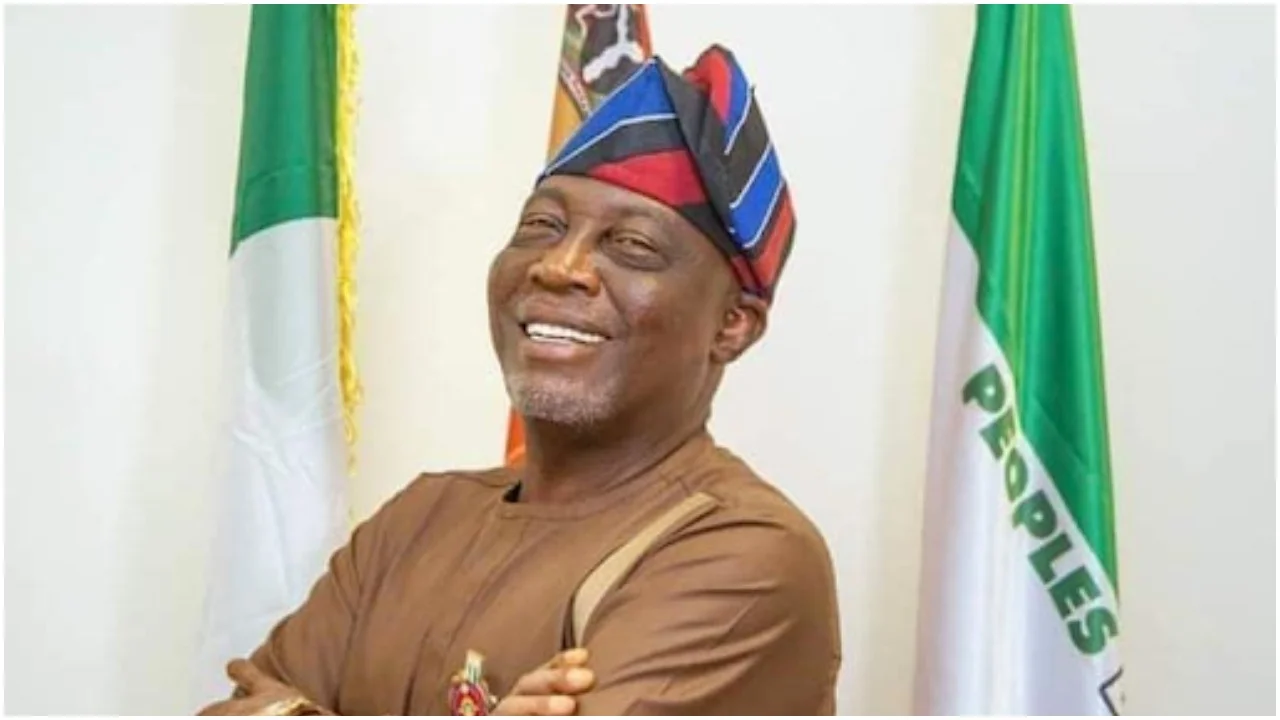The Nigerian Senate turned into a battleground of political fireworks on Tuesday as lawmakers from the ruling All Progressives Congress (APC) and the opposition Peoples Democratic Party (PDP) locked horns over the defection of Senator Ned Nwoko from the PDP to the APC.
The plenary session quickly descended into heated exchanges as PDP senators challenged Nwoko’s defection, arguing that the party was not in crisis and, therefore, his move was unconstitutional.
The debate kicked off when Senate Minority Leader, Abba Moro raised a constitutional point of order, questioning whether there was a legitimate division in the PDP’s National Working Committee (NWC) to justify Nwoko’s defection.
Moro engaged the Deputy President of the Senate, Jibril Barau, Senate Leader Opeyemi Bamidele, and Senate President Godswill Akpabio.

Barau stated that the constitution allows any person to decamp, provided there is a division in their party.
“Everybody in the country knows there is a division—you have the Wike faction and the Bala Mohammed faction,” Barau argued.
Moro responded, “I want to say at this point that the PDP is a law-abiding organization. The Court of Appeal made a pronouncement on the secretaryship of the party, and the party is adhering to that decision until ruled otherwise.”
Akpabio interjected, “What does the Supreme Court say?”
Moro continued, “The Court of Appeal has ruled that Senator Anyanwu is the secretary of the party until the Supreme Court decides otherwise. And the party, as a law-abiding organization, is…”
Akpabio cut in again, “What about your governors? What did your governors say, Minority Leader? We are going to set up an ad-hoc committee to look into your party affairs.”
Moro replied, “The party is an organization; the governors are a forum. As members of the party, they are entitled to their opinions, but as a party, we recognize the pronouncements of the court and abide by its rulings.”
The Senate Leader also interjected, “I am rising on a constitutional point of order. My point of order is based on Section 232 of the Constitution of the Federal Republic of Nigeria, as amended. In fact, relevant to my submission is the entire Chapter 7 of the Constitution, which deals with the judicial arm of government.
“While I thank the Minority Leader for the grandstanding he’s done on the floor today—which was expected of him as the Minority Leader—I want him to know that the PDP secretary has already taken note of his action here, and I congratulate him for that.
“However, this matter rests squarely on the constitution. Every legislator has the right to cross-cap, and the constitution defines the circumstances under which this can happen. Our own rules also take legislative note of that constitutional principle.
“The Minority Leader defeated his own argument by reading the proviso to Section 68, Subsection G. Whether or not there is a division in the PDP is a matter of fact, but it will not be tried on the floor of this Senate. It is for the court of law. It is visible—even to the blind—that there are sharp divisions in the PDP today. Wike is leading one faction, and the other faction is being led by Bala Mohammed.
“Mr. President, I want to appeal that you save the precious time of this Senate by ensuring we bring this debate to a close because it is an attempt to distract us. It is also an attempt to take away from the credit of the APC, which has gained a major member today.
“Furthermore, it is an attempt to fetter the discretion of other PDP and minority party members who may be considering joining the APC. It is the constitutional right of everyone to cross-cap as long as they fulfill the constitutional provisions of Section 68, Subsection G. If anyone doubts this, the courtroom is available to adjudicate. I thank you, sir. We cannot take over the job of the court.”
As the exchanges grew more intense, the Senate President intervened, attempting to restore order. However, the back-and-forth continued, with the Minority Leader insisting that the APC itself had internal disputes, yet no senators were defecting from the ruling party. “If we say PDP is divided, then is APC not in court over its internal crisis? Does that mean APC is divided too?” he asked.
In a final ruling, the Senate President dismissed the PDP’s objections, stating that the chamber could not assume the role of a court in determining party divisions. He upheld Nwoko’s defection and ruled the opposition’s point of order out of order, paving the way for the continuation of legislative proceedings.
With tensions still simmering, the session proceeded to the next item on the order paper, but the political drama left no doubt that the battle for party supremacy in the Senate is far from over.
Earlier, Akpabio had read Nwoko’s defection letter from the PDP to the APC, in which he urged the Senate to set up an ad-hoc committee to investigate the crisis within the PDP and recommend a way forward to safeguard the nation’s democracy.
Senator Nwoko’s defection letter was read on the floor by Senate President Godswill Akpabio.
According to Nwoko, he left the PDP because the party, which once stood as a formidable platform for democratic participation and national development, has been engulfed in persistent crises, ranging from internal divisions to a lack of clear leadership and direction.
In the letter, Nwoko urged the Senate to, as a matter of urgency, set up an ad-hoc committee to investigate the crisis within the PDP and recommend a way forward to safeguard democracy.
The letter, titled “Notice of Departure from the Peoples Democratic Party (PDP) to the All Progressives Congress (APC),” reads:
*”I write to formally inform you and my distinguished colleagues of my decision to resign my membership from the Peoples Democratic Party (PDP) and consequently join the All Progressives Congress (APC).
“This decision was not made lightly but after deep reflection and extensive consultations with my constituents, political associates, and stakeholders across Delta North Senatorial District. The PDP, which once stood as a formidable platform for democratic participation and national development, has unfortunately been engulfed in persistent crises, ranging from internal divisions to a lack of clear leadership and direction. These unresolved conflicts have weakened its ability to function as an effective opposition, thereby threatening the very fabric of our democracy.
“Mr. President, democracy thrives on a strong and credible opposition that keeps the government in check, promotes accountability, and ensures that the voice of all Nigerians is heard. The continued deterioration of the PDP raises serious concerns about the future of our multi-party democracy. If urgent steps are not taken to address this national emergency, Nigeria risks sliding into a dangerous one-party system, which history has shown to be detrimental to governance and national stability.
“In view of this, I urge the Senate to take this matter seriously by setting up an ad-hoc committee to investigate the crisis within the PDP and recommend a way forward to safeguard our democracy. This committee should examine the root causes of the party’s internal implosion, engage relevant stakeholders, and propose reforms that will ensure the survival of a viable opposition in Nigeria.
“I remain committed to serving the people of Delta North and contributing to the progress of our dear nation. Accordingly, I kindly request that my new party affiliation be reflected in the records of the Senate.
“Please accept the assurances of my highest esteem.”*



